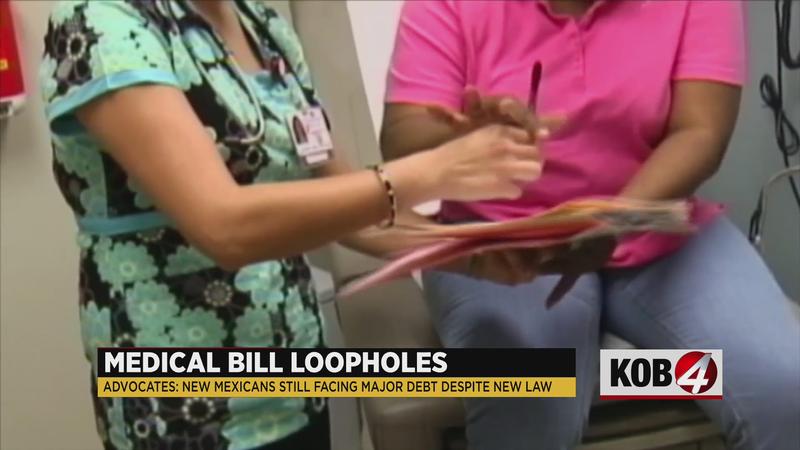Advocates point out loopholes in new medical debt law
[anvplayer video=”5059212″ station=”998127″]
ALBUQUERQUE, N.M. – This year, New Mexico lawmakers passed the Patient Debt Collection Protection Act, which meant medical providers couldn’t send bills to collections or sue patients who are considered low income, but advocates say they’re concerned about loopholes.
Dr. Jesse Barnes M.D., a family medicine specialist, has heartbreaking stories about patients.
“When we finally were able to convince him to get the testing that he needed, he had advanced cancer, that probably could’ve been treated if we detected it when it first started developing symptoms rather than waiting out of fear of the cost of the care that he needed,” said Barnes. “It’s heartbreaking to watch people day after day all across New Mexico having to choose between feeding their family, keeping a house over their heads and getting the medical care that they need because they know that they’re going to incur enormous debts by doing so.”
This year, state lawmakers passed a law to try and prevent this by requiring medical providers to check if uninsured patients qualify for public programs like Medicaid and to also help them enroll.
The law also makes it illegal for providers and creditors to sue low-income patients or send them to collections over medical debt, and those who advocate for people in these situations say this is important.
“No one should have to avoid necessary medical care out of fear of financial ruin and we know here in New Mexico 1/4 of New Mexicans has debt in collections and we know that 37% of patients who experience medical debt or a problem with medical bills use up all their savings just to pay those bills,” said Nicolas Cordova with the New Mexico Center on Law and Poverty.
Mayte Lopez said she knows that feeling first hand. She said she got kicked off of her insurance as a freshman at UNM.
“During that time I was forgoing treatment, I definitely didn’t have a primary care, wasn’t getting dental visits, eye care anything like,” said Lopez.
But then Lopez said she had to have emergency surgery to removing an organ — leaving her with more than $18,000 in collections at age 28.
“Because of that debt, my credit score is really low. I can’t get a credit card, can’t buy a car, I’m basically living paycheck to paycheck,” Lopez said.
She wishes a law like this could’ve been in place years ago.
“I’ve even considered bankruptcy.”
Except even with this new law in place, doctors and lawyers say there are still loopholes.
“Hospitals and providers just aren’t required to check a patient’s income in the first place,” said Cordova. “The second loophole that we’ve identified is that, you know, if you do qualify for protection from these collection actions, that protection automatically expires after one year.”
Legislators passed the law but, but now it’s up to the Office of the Superintendent of Insurance to put in rules and enforce it.
“That debt is kind of this thing that’s holding me back, and I feel like I can’t really move forward in my career, move forward in my life, move if I wanted to because I don’t have a lot of options,” said Lopez.
If you’d like to speak up about this, there’s a virtual public hearing on Monday, Sept. 27 or you can send concerns by mail or email. To find more information about the law and meeting, visit, New Mexico Together for Healthcare.
